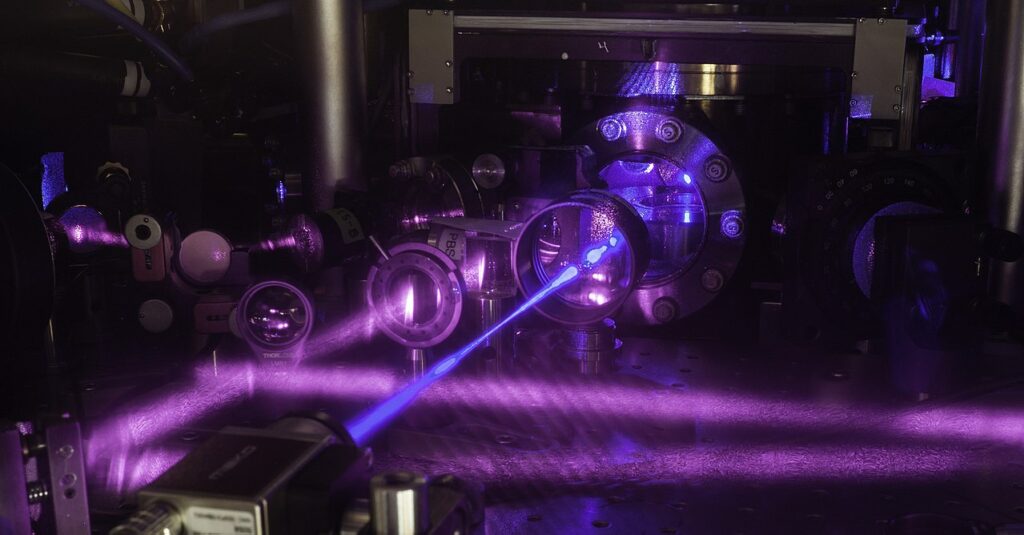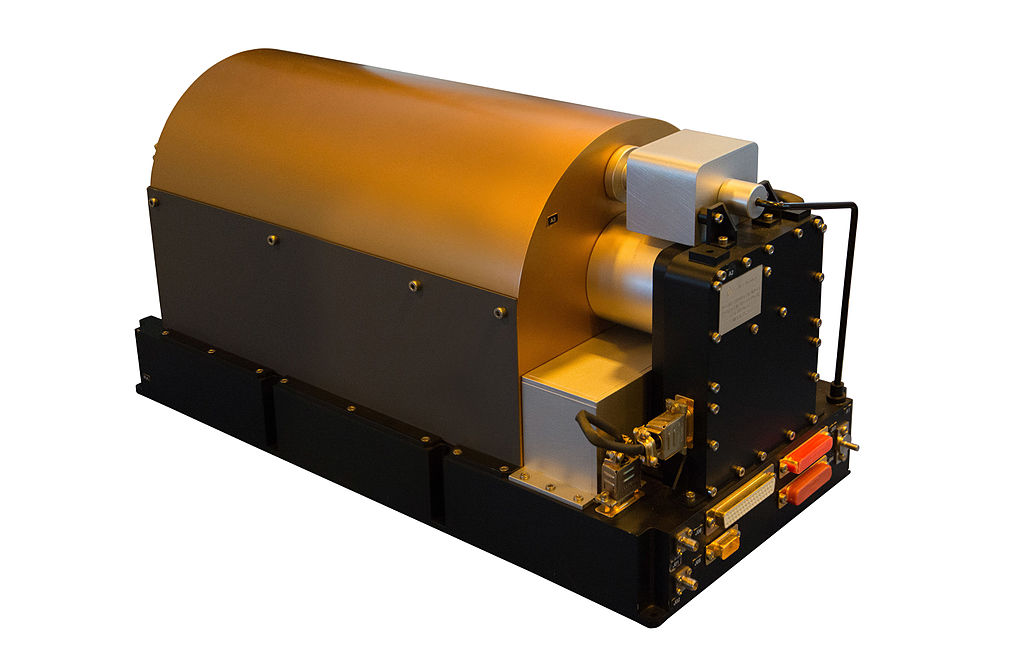In today’s fast-paced world, precise timekeeping is essential for a wide range of applications, from global navigation to the military, and to telecommunications. Enter the Atomic Clock, a marvel of scientific innovation that has redefined our understanding of time. Below we will delve into the intricacies of Atomic Clocks, exploring their history, functioning, and practical uses.

Table of Contents
The Foundation of Precise Timekeeping
Atomic Clock in a Nutshell
At its core, an Atomic Clock is a highly specialized timekeeping device that relies on the vibrations of atoms to measure time with unparalleled accuracy. Unlike traditional clocks, which rely on mechanical or quartz-based mechanisms, Atomic Clocks tap into the inherent stability of atomic oscillations.
The Birth of Atomic Timekeeping
The concept of atomic timekeeping was born out of the quest for greater accuracy in measuring time. In the mid-20th century, scientists harnessed the oscillations of atoms to create timekeeping devices that would revolutionize our world.
How Atomic Clocks Work
They rely on the vibrations of atoms, primarily cesium or rubidium, to keep time. These atoms oscillate at incredibly stable frequencies, serving as a natural timekeeper. By counting these oscillations, they are able to measure time with astonishing precision.
Applications of Atomic Clocks

Global Positioning System (GPS)
The Global Positioning System (GPS) has become an indispensable part of modern life, guiding us with accuracy and reliability. Atomic Clocks are the backbone of GPS technology, ensuring that your GPS device can pinpoint your location with pinpoint accuracy.
Telecommunications
In the world of telecommunications, split-second precision is crucial. Atomic Clocks play a pivotal role in synchronizing data transmission, ensuring that our calls, texts, and internet connections are seamless and uninterrupted.
Scientific Discoveries
Atomic Clocks have been instrumental in scientific breakthroughs, including the validation of Einstein’s theory of relativity. They allow scientists to conduct experiments with extreme precision, expanding our understanding of the universe.
Financial Markets
In the realm of finance, time is money. Atomic Clocks help financial institutions timestamp transactions with unparalleled accuracy, ensuring the integrity of global financial markets.
Atomic Clocks in Everyday Life
Did you know that your smartphone syncs its time with Atomic Clocks? This is just one of the many ways the atomic clock is engrained in our daily lives.
The Precision of Cooking and Baking
Have you ever wondered how professional chefs create exquisite dishes with impeccable timing? Atomic Clocks, though not directly present in your kitchen, play an essential role in ensuring that the culinary world maintains its precision. Timers on ovens and microwaves, for instance, are calibrated to Atomic Clock standards, allowing you to cook your favorite recipes to perfection. The precise timing ensures that your soufflé rises just right, your steak is cooked to your preferred level of doneness, and your cookies come out of the oven golden and delicious.
The Reliability of Transportation
Whether you’re commuting to work or embarking on an overseas adventure, accurate timekeeping is crucial in the world of transportation. Airport schedules, train timetables, and bus departures are all synchronized with Atomic Clocks to ensure that passengers arrive at their destinations on time. This precision reduces delays and ensures that you can catch your flight or train without a hitch, making travel more convenient and less stressful.
The World of Telecommunications
In today’s interconnected world, telecommunications have become the lifeblood of global communication. The smooth functioning of phones, emails, and video calls relies on precise timekeeping. Atomic Clocks enable telecommunication networks to synchronize data transmission, ensuring that your messages are delivered without delays or glitches. When you make that important business call or connect with a loved one across the globe, Atomic Clocks are working behind the scenes to make it all happen seamlessly.
Financial Transactions and Banking
For the financial sector, where every millisecond counts, Atomic Clocks are indispensable. Stock exchanges, banks, and financial institutions rely on precise timekeeping to timestamp transactions accurately. This ensures the integrity of global financial markets and prevents discrepancies that could lead to financial crises. Thanks to the accuracy provided by Atomic Clocks, your online banking transactions are executed flawlessly, and your investments are handled with precision.
GPS and Navigation
The Global Positioning System (GPS) has become an integral part of our daily lives, guiding us to our destinations with remarkable accuracy. Behind every GPS device, there’s a network of satellites equipped with Atomic Clocks. These satellites continually transmit precise time signals to your GPS device, allowing it to triangulate your position on Earth’s surface. Whether you’re using GPS for driving, hiking, or finding your way in a new city, Atomic Clocks ensure that you reach your destination accurately and efficiently.
Maintaining Internet Connectivity
From streaming movies to browsing websites, the internet has become a vital part of our daily routine. Atomic Clocks play a behind-the-scenes role in ensuring that your internet connection remains stable and uninterrupted. Network providers use Atomic Clocks to synchronize data transmission, reducing lag and latency. This means you can enjoy seamless online experiences, from video calls with friends to uninterrupted Netflix binges.
Frequently Asked Questions
How accurate are Atomic Clocks?
Atomic Clocks can maintain accuracy within a few billionths of a second, making them the most precise timekeeping devices in existence.
Are there different types of Atomic Clocks?
Yes, the two main types are cesium atomic clocks and rubidium atomic clocks, each with its own set of advantages and applications.
Can I own an Atomic Clock for personal use?
While miniature Atomic Clocks exist, they are primarily used for scientific and industrial purposes. Owning one for personal use is rare and costly.
How do Atomic Clocks contribute to scientific research?
Atomic Clocks enable experiments that test the fundamental laws of physics and aid in measuring phenomena like time dilation and gravitational effects.
What happens if an Atomic Clock fails?
Redundancy systems and constant monitoring ensure that if one Atomic Clock fails, others take over to maintain accurate timekeeping.
Are there any limitations to Atomic Clocks?
Atomic Clocks can be affected by external factors such as magnetic fields and radiation, requiring carefully controlled environments for optimal performance.
In the realm of timekeeping, Atomic Clocks stand as a testament to human ingenuity and the pursuit of precision. From their humble beginnings in scientific laboratories to their critical roles in modern technology, Atomic Clocks have transformed our world. As you go about your day, remember that these remarkable devices silently keep time with unparalleled accuracy, shaping the very fabric of our modern lives.